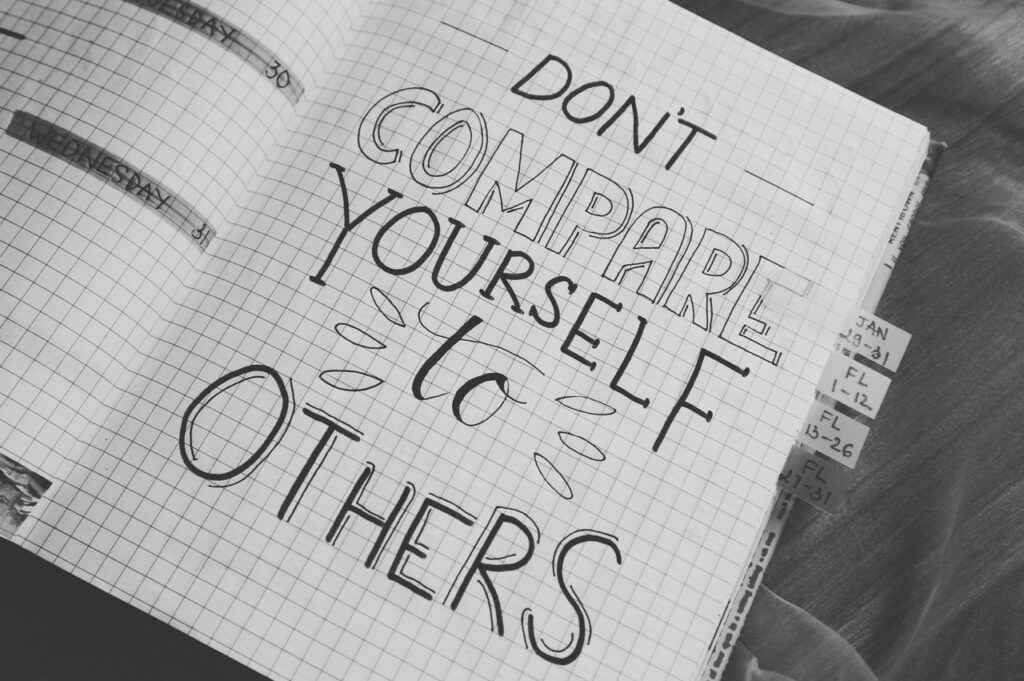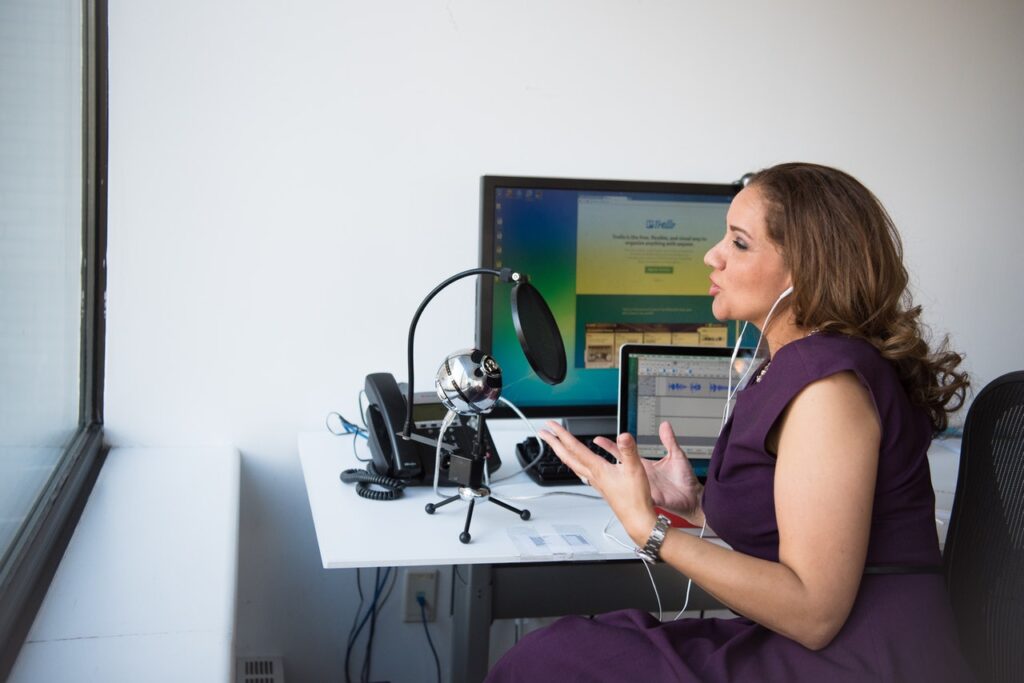Recently in my Turkish class, my teacher dropped a revelation on all of us…
She reminded us that in the second week of this month, we would have been studying Turkish for one whole year. Learning Turkish online has been an amazing experience. Our class has shrunk significantly from day 1 to where we are now, but all of us who have stuck with the class have become closer as friends.
Furthermore, it’s been really motivating to know that I can do something for an entire year. Milestones like this are really good to assess your self-growth and commitment to your interests. However, there was one thing that worried me about the whole situation.
If I’ve been studying Turkish for at least a year now, why do I still suck?
I moved to Turkey about halfway through my online classes. Despite having some “home-country advantage” I still find my language skills really lacking. It almost made feel like I was wasting an opportunity others didn’t have.
I always manage to lose track of conversations here after a few sentences. I can’t seem to understand television or news, and despite the wealth of target language resources here, I find reading difficult here as well.
So, what am I doing wrong? Maybe you’ve found yourself in this predicament too. After dedicating your time and effort for a whole year, you aren’t where you want to be. Let’s look at some mindset changes that could help us reach our goal of fluency better.
Analyse yourself, do you really suck?

Let’s take a step back and look at our initial statement again. Do we really suck?
Without being too hard on ourselves, but also being a bit more objective, we need to ask ourselves; what can we actually do? After a whole year of study, are you really still at the zero point mark? Or have you progressed somewhat? Make sure to acknowledge the progress that you make and reward yourself for it, even if it is only small.
By now you must’ve at least tried some speaking, as well as learnt basic verbs, nouns for commonplace situations; like foods and household items. It might not be where you wanted to be, but you probably have a very limited set of tools for communication.
The issue is that there aren’t many scenarios where your tools come in handy just yet. Or if there are, you’re not sure where to go from there. Yes, you know how to introduce yourself to someone, but how can you continue your conversation from there?
You may not think you’ve learnt much, but it’s way more than someone who has had no exposure to your target language. Furthermore, you probably have a lot of passive knowledge built up that you just don’t have access to yet.
Continued motivation and positive self-talk are really important for your long-term language development. As we are about to see, having the correct mindset and expectations will help you a lot as well. It will help you define clear goals and milestones and stop you from being unnecessarily critical of yourself.
The problem with unrealistic conversations
One of the big issues with expecting too much from language text books, is you don’t always learn real conversations. You soon realise the limits of learning topics like shopping interactions, directions, or medical terminology. They do have their use, but it might not be day-to-day language for your context.
Learning language for a native, spoken, environment can be really hard. And there are all kinds of challenges, follow my link here, if you’d like to read about some of those challenges.
One mindset I’d like to analyse right now; is just how much time have you spent studying your target language? While it’s been a year since you started, how many hours a week do you study for? Did you take any breaks? If it was a class, like mine, did you have holiday breaks?
If you tally up the actual hours you have spent studying a language, you’ll find it’s much less than a year. Knowing this might help reduce some of your disappointment and negative self-talk. Only classes, and no outside study, means you’ve actually spent less time with your language than you think.
Analyse your expectations, what did you really expect?

Now let’s talk a little more about expectations and mindset when it comes to language learning. While you might dream of one day being fluent in your target language, you need to have realistic expectations.
- How much you can do?
- How much you can get out of your language resources?
- And how long will it all take.
Many of us who start learning a language find that we get fatigued much earlier on than we thought. It feels like it’s been so long, yet we’re not progressing as fast as we should?
Where did these expectations come from? Have we previously learnt a language at this speed? Do we, personally, know others who have? Even then, our expectations for language learning might actually be based on something else. More on our dreams and aspirations rather than any kind of sound language data or knowledge.
Language learning is not a linear journey. You will find during the beginning stages everything comes easily. Memorizing vocab, basic conversation, even grammar; it’s all easy, fun, and exciting!
Or so you thought. As you continue, that initial spark of excitement quickly fades away. It takes more energy than it used to, to charge your brain with happy thoughts and endorphins. You wonder if it’ll just be easier to move onto something else.
You have probably hit the first low point in your language learning journey. There will be high points in the future, but there will also be more lows as well. It’s important to have this discussion early on. We need to be ready to overcome that initial loss of motivation if we want to really master a language.
Looking to YouTube polyglots for advice and motivation

It’s 2023, and the amount of hyper-polyglots and language gurus online grows every day. Just like Dungeons and Dragons, language learning seems to have gotten a cultural makeover. It’s no longer just for nerds and is sort of like a hobby for people nowadays.
YouTube and the internet have done great things for the language learning community. Not least important of all is defining it, giving it a name; the Polyglot community. My teenage self was so happy when I found the new Polyglot community, there were others like me, and some of them were really really good.
I wanted to be just like these language learning geniuses speaking many languages fluently. However, as with a lot of things online, the lines of reality have become a little blurry.
There are now a lot of people online who are preaching that languages can be learnt, sometimes multiple at a time, in a matter of months. If you’re comparing your progress over ‘a year’ to people like them, there’s almost no chance the result will be positive.
My thoughts about people like that in general are; it isn’t impossible to do the things they claim. You can gain fluency in speaking relatively quickly, but so much of the how and why of their techniques are either hidden or glossed over.
We often don’t acknowledge their prior experience with other languages, or their responsibilities vs ours when comparing ourselves. If someone is receiving sponsorships to learn languages and speak about it on YouTube, they’re in such a more advantageous position than you and me.
While I feel like watching polyglots online can be great for motivation, it can quickly lead to comparison syndrome which might actually hamper your motivation.
The most beneficial thing I have seen on YouTube are polyglots who actually go into detail about their learning process. There is a whole sub-community of learners who are actively observing themselves while learning a language. They try different methodologies and compare their results and experiences.
There is a language learner online by the username SeaboltSpeaks who, among others, took part in something called The 40hour 7 day Language Challenge. Polyglots would study a language for 40hours during the week, treating it like a job in terms of time commitment. This sort of stuff is really inspirational for me because we see people who are committed to language learning, but who also have mastered their time management as well. If you want fluency fast, this might be the amount of exposure and study time we’re talking about.
Change your expectations, all you need is fluent enough?

Fluency is often cited as the end goal when it comes to language learning. But fluency is such a nebulous concept. What do we actually mean by fluency?
I’d wager that most people who give up on studying a language never really had a grasp on what their definition of fluency was. Fluency is also different to speaking like a native as well. In my opinion, there are cultural connotations as well as certain spoken language mannerisms necessary to go from fluent to native level.
Maybe our desire to reach fluency is in some way actually holding us back? Or at least, it results in us never really being happy with our language learning level; even if we have been studying for an entire year.
Plenty of people get by in life speaking the bare minimum of a language to survive. Think about people who have migrated to another country. Language fluency is often not a luxury available to them, however, they learn what they can and use it to get by in daily life.
If you’re travelling or staying in a place for a short time only, you may not need to discuss politics and academia, you just need to get by. I go into this more in this article here, where I talk about the difference between speaking well and speaking enough to get by in a country.
Sometimes changing our goals from fluent to “fluent enough” can prevent us from being too harsh on ourselves. “Fluent enough” could also be considered one milestone in your longer language journey. The pathway from “fluent enough” to fluent is much shorter than from zero to fluent; you’ve already climbed the hill and can see your destination at the end.
Language learning is dynamic. What worked for A1 will not work for B1.

We’ve already mentioned the feeling of losing enthusiasm as we continue on our language learning journey. Language learning is dynamic, and as we continue on we will have different feelings when it comes to our target language.
There’s nothing wrong with changing up your technique or time schedule for learning if it no longer makes you happy. I believe that happiness should be a key factor in language learning. Yes, it can be hard and difficult sometimes but it shouldn’t get to the point where you hate studying.
We’re no longer in school anymore, and there’s no teacher breathing down your neck to complete your verb charts. You should be able to study how you want to.
Happiness is a good sign that you are still motivated to study your language. However, you may also want to change up your study routine as you progress in your level of fluency.
What you used to study at the beginner levels (A1 in the European syllabus) will not work when you enter the intermediate (B1-B2) and advanced (C1-C2) levels. Or at the very least they will need some tweaking and revision. The demand for your time and your focus will go up as your level does. Failure to meet this demand, sticking to what you’re comfortable with, can lead to plateauing.
There are plateaus at the beginner, intermediate, and advanced levels and not developing your study techniques as you progress is a big part of this.
Language learning needs to be active.

Some parts of language learning require more focus and brain energy than others. Often such activities aren’t as popular as those that are light on the mind. It’s why things like “language gaming” like DuoLingo, and watching foreign films are so fun.
They expose you to the language, and you don’t really need to commit that much energy to the task at hand. I have already written about how movies and songs can be super-helpful in learning about a loved one’s language and culture; even if you aren’t learning the language. Furthermore we need these forms of language interaction as well as the more intense ones, but that’s the point; we need both.
You won’t be able to learn a language by just listening to music, or just by playing your favourite vocabulary game. You shouldn’t stop them though either, because these contribute to your passive learning study tools and they are what keep you motivated and entertained.
If you want to supercharge your language learning, combine what you like to do passively with your active study. You can try these methods out:
- Treat songs and videos as sources of new vocab. Go over the media you like, write down the words you don’t know, and turn them into flashcards.
- Actively write something down when playing your favourite language learning app. Make notes of what you have studied.
- If you have an exchange partner don’t just read over your conversation or voice notes once. Go back, listen to them again to try and pick up on things you might’ve missed earlier.
Being a conscious or active learner is so important as you will know what works and what doesn’t work for you. There’s no way that you will know whether or not an activity is working for you if you are not looking out for it!
You might be closer to your breakthrough point then you think

As we’ve highlighted above there are plateaus and upwards slopes in our journeys to fluency. Oftentimes, it’s not possible to see how far these periods will stretch out; until we’ve overcome them and view them with hindsight.
Language learning, like any skill, is an accumulation of mini-skills and habits that eventually coalesce together to form a dynamic and fluent language learner. However, we don’t always know when that breakthrough point will happen.
The line that once you’ve crossed it everything becomes easier and things just start to fall into place. We don’t know how large the glass is, we just need to know we have to keep filling it up. So, while you feel like you aren’t making any progress, don’t give up!
You might just be a few more weeks, or months, away from breaking through to your next milestone. If you quit now though, you’ll never know if you could’ve made it.
Quitting is different to taking a break from language study, and many polyglots actually recommend taking some time away from study. Our brains can eventually get worn down with all that language input and our motivation might just disappear. One week, even one month, away from the language to let it all sink in can be really beneficial. When you return to your study, not if, you will see that your subconscious has been actively trying to form networks and patterns in your brain. Maybe all your brain needed was a bit of time on its own to bring you up to speed on everything.
Would you like an opportunity to supercharge your language learning? Despite taking classes, I found that once I organised my own private classes with Turkish teachers, I noticed a big change. I use italki to find teachers, book appointments and tailor my lessons to how I learnt best. If you’d also like to give italki a try, follow my link to their website for a special starting offer!
So after a whole year (maybe 3 months, if we tallied up hours exactly) of Turkish classes, do I suck? Well, I’m not fluent, but I’m happy and proud of my level. I’m able to understand most simple phrases that are spoken to me, even if I can’t respond back. I’ve also seemed to survive in Istanbul, despite what I consider basic Turkish skills. So for those of you that are feeling a little disheartened; it’s time to take stock of your small victories, tweak your expectations and milestones, and look ahead for that breakthrough point!





2 COMMENTS
Comments are closed.